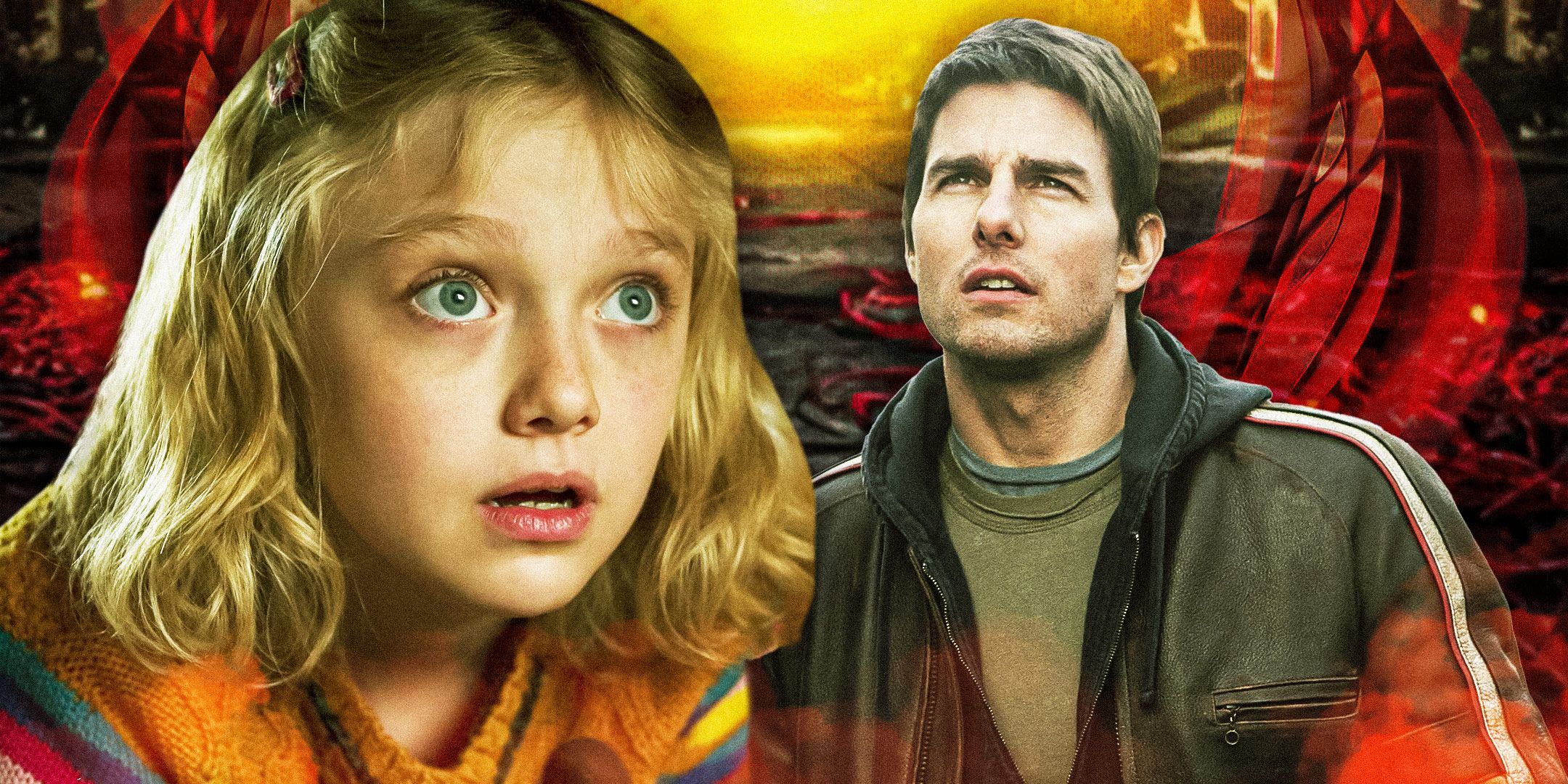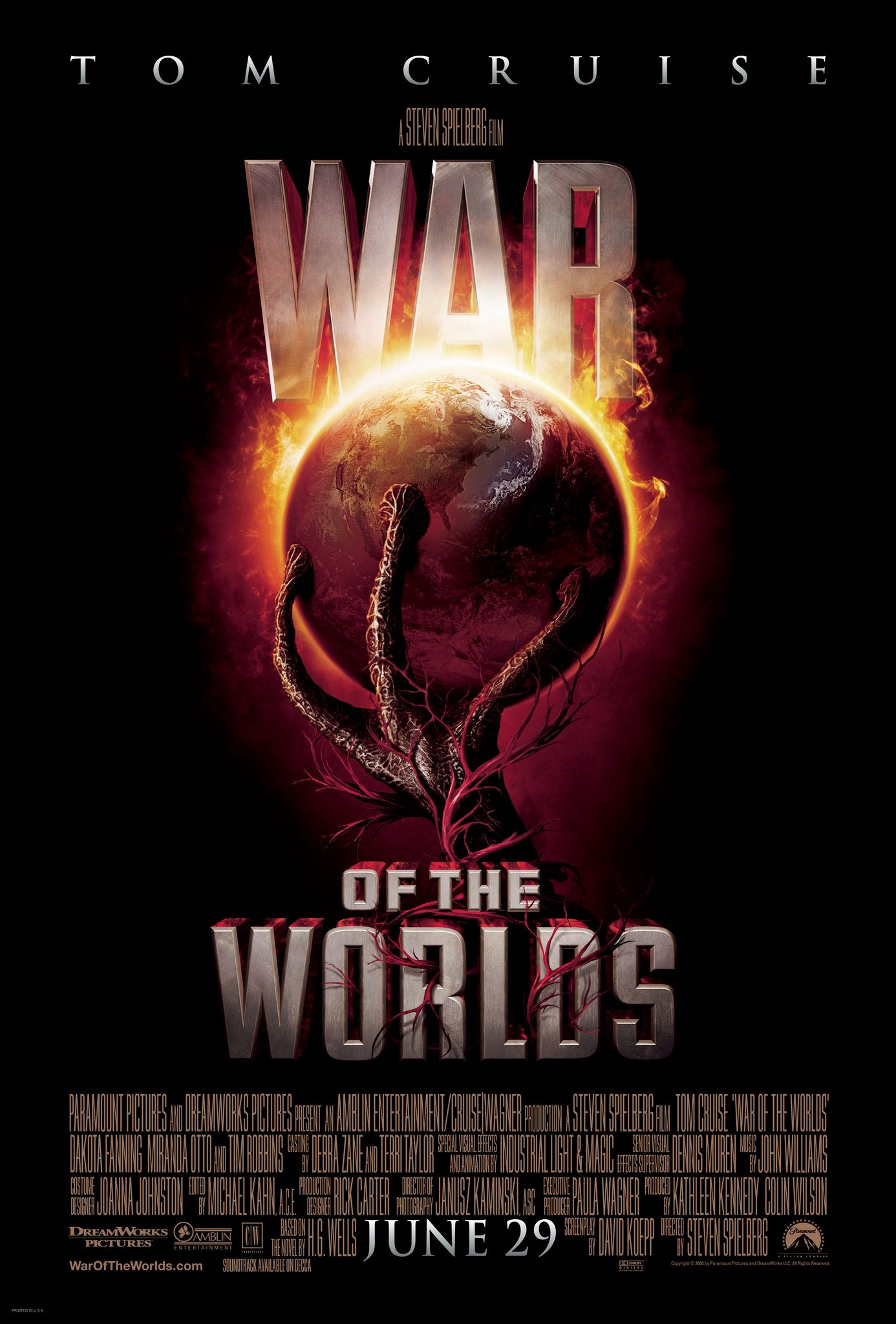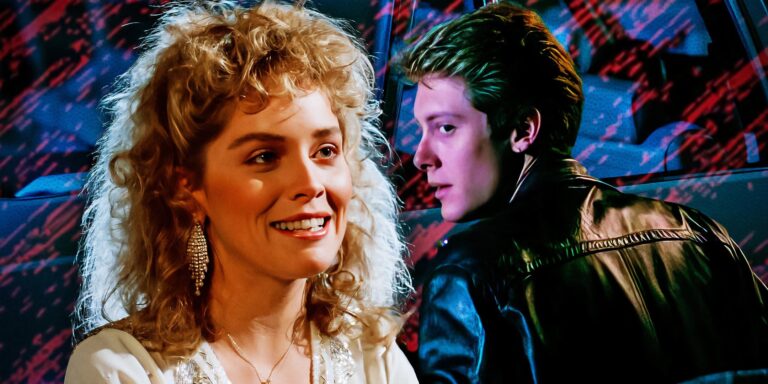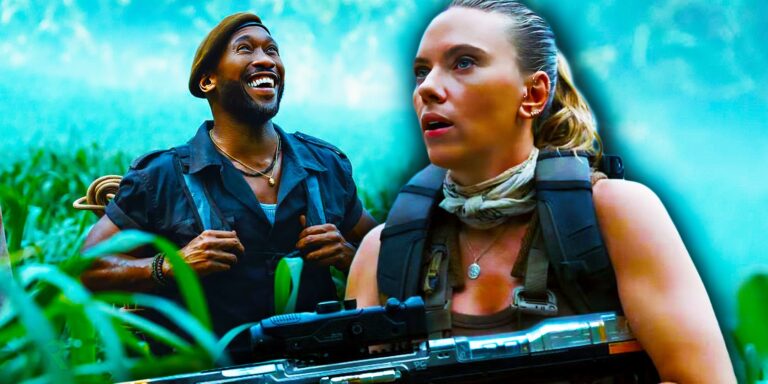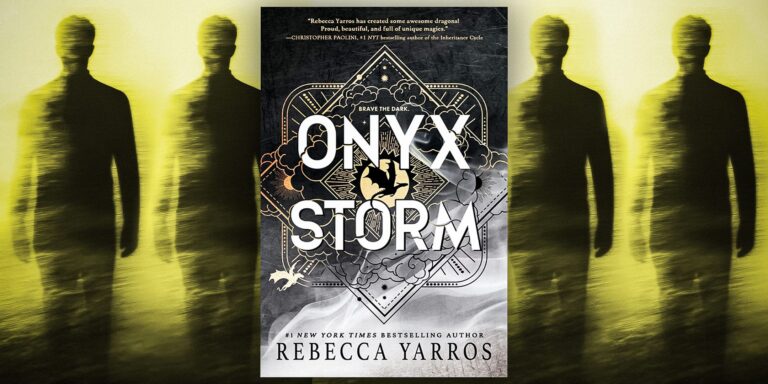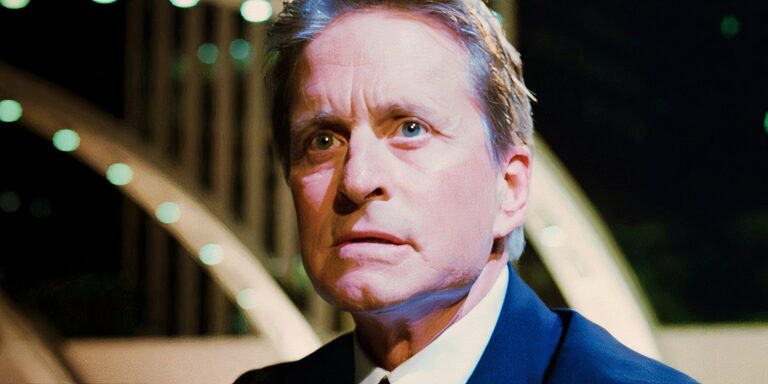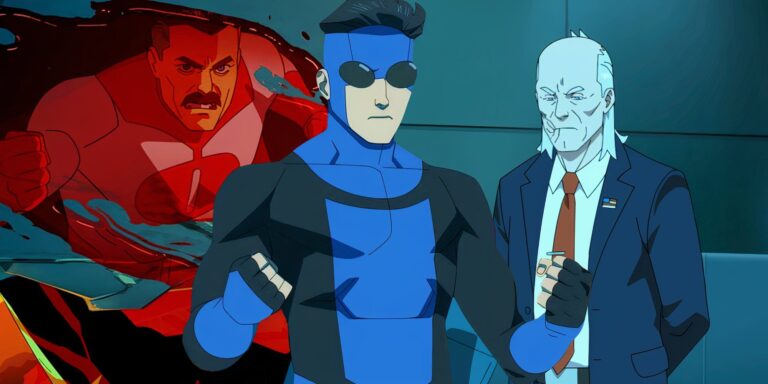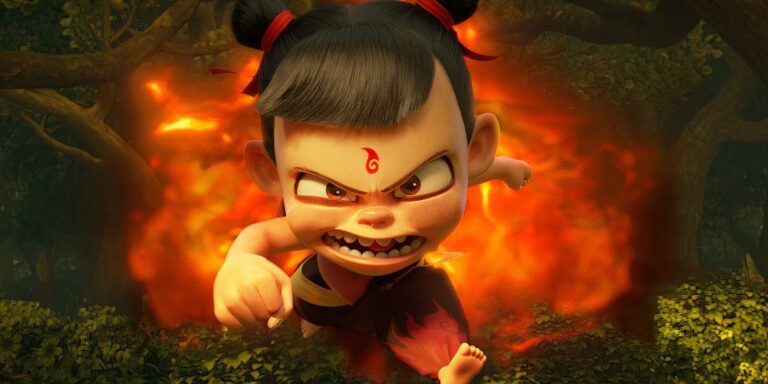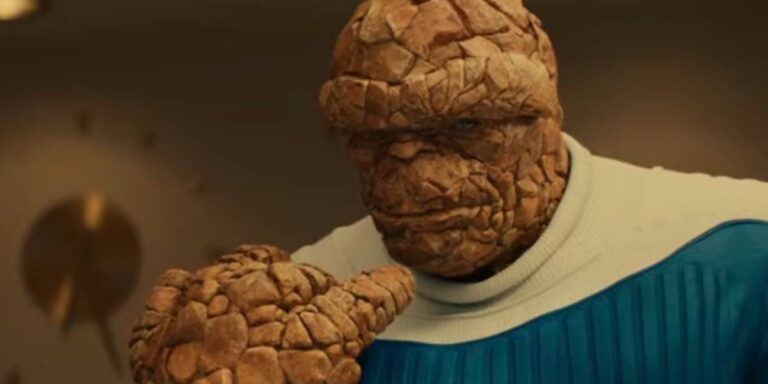Steven Spielberg’s War of the Worlds (2005) follows single father Ray Ferrier’s desperate attempt to usher his two children to safety as their city is plagued by hostile newcomers in the alien invasion movie. After a mysterious lightning storm wipes out the city’s power grid, the citizens of New Jersey make the horrifying discovery that aliens from Mars had buried machines known as “Tripods” beneath the surface of the Earth many centuries past. What were initially thought to be lightning strikes were actually energy ray attacks, which caused mass destruction while simultaneously injecting capsules into the Earth, transporting the Martians to their machines.
In one of Tom Cruise’s numerous sci-fi movies, his character escapes the city with his daughter Rachel (Dakota Fanning), but her older brother, Robbie (Justin Chatwin), soon becomes separated from them. As a mass exodus flees the Tripods, Ray and Rachel are flagged down by a stranger, Harlan Ogilvy (Tim Robbins), who provides them shelter. When Harlan is driven to panic by the death and destruction outside, Ray is forced to kill him to conceal their presence, but even so, they are soon flushed out of hiding. After making their way to Boston, Ray learns the Tripods have begun to mysteriously fall, and realizes their shields are down.
What Happens To The Aliens In War Of The Worlds?
How Do They All Die Off?
The abrupt defeat of the Tripods is a somewhat confusing plot point in Spielberg’s War of the Worlds. Throughout the film, no amount of military force is able to penetrate their magnetic fields, and yet by the time Ray and Rachel reach Boston, the machines’ shields have been inexplicably lowered. This is made evident by a flock of crows that begin dive-bombing a Tripod. Ray alerts the military forces of the lowered shields, and an array of missiles quickly brings down the hulking machine. Moments before, a nearby soldier had informed Ray that the Tripods had suddenly begun acting erratically.
Upon the Boston Tripod’s defeat, the machine’s processing engine spews a sickly mixture of blood and gore onto the ground below as a nearly-dead Martian dangles limply from the cockpit. The sudden fall of the invading forces was made possible by the multitude of microorganisms populating planet Earth. When they harvested human blood and tissue to fertilize their Red Weed, the Martians exposed themselves to a host of bacteria which their immune systems had not evolved to combat. This infection caused the Tripods’ shields to be dropped as their drivers quickly sickened and died.
Why War Of The Worlds Ends So Abruptly
Even Steven Spielberg Doesn’t Like The Ending
Steven Spielberg has admitted that the War of the Worlds ending doesn’t make sense. In James Cameron’s Story of Science Fiction, Spielberg is quoted as saying he “never could figure out how to end that darn thing,” and that, “the film doesn’t have a good ending.” In the grand scheme of the nearly two-hour film, less than thee minutes are spent explaining the sudden defeat of the alien invaders. The mysterious circumstances that enabled this defeat are explained solely in the postscript by the narrator (Morgan Freeman), harkening back to the iconic War of the Worlds intro monologue.
Related
Steven Spielberg’s Next Movie Is A Return To The Director’s Roots As Screenwriter Confirms Genre
Screenwriter David Koepp shares a tease about Steven Spielberg’s next film, confirming the genre and that it marks a return to the director’s roots.
However, Spielberg was not necessarily remiss in choosing to end the film in this abrupt and somewhat vague manner, even if it does leave something to be desired in the realm of falling action. After all, the source material, H.G. Wells’ 1898 novel War of the Worlds, ended quite similarly. Wells’ original ending had his infamous Martians die off upon contact with “putrefactive bacteria.” This surprising lack of preparation by a supposedly highly advanced alien race was explained as ignorance of disease due to the fact that death and decomposition had long since been eradicated on their planet.
Does Ray Reunite With His Kids At The End Of War Of The Worlds?
Do Rachel and Robbie Make It Out Alive?
Ray’s son, Robbie, separates himself from his family shortly before Ogilvy allows Ray and Rachel to shelter in his basement. The teenager’s dynamic with his father is strained from the start, and his determination to take part in the seemingly futile war against the Tripods appears to be a juvenile attempt to assert his autonomy and independence from his father. This puts Ray in the impossible position of having to choose which of his two children to protect. As a concerned couple try to carry the apparently abandoned Rachel to safety, Ray is forced to leave Robbie behind.
In the final scenes of the film, Robbie is reunited with his family at their grandparents’ home in Boston, their original destination upon fleeing the city. Shockingly, each member of the family has survived the alien attack unscathed. Robbie had broken off from Ray and Rachel to fight the invasion and somehow made it out alive despite ostensibly being engulfed in a blaze of fire. His involvement in the battle is neither seen nor explained in the film. The closing scenes indicate that the trauma of the invasion has healed some of the Ferriers’ family wounds as they realize some things are more important than the bitterness of the past.
What Happens To The Red Weed After The Movie
Why Did The Red Weed Turn To Dust?
The Red Weed was a fast-growing plant-like organism brought to Earth by the invading Martians. It required fertilization via human blood and tissue in order to survive Earth’s climate. In the film, captured humans were fed through the Tripods’ processing engines in order to produce a fertilizing spray for this vegetation. The Red Weed was possibly a food source for the Martians, as its introduction to Earth in the film is an intentional aspect of the alien invaders’ plans, but it appears it had a darker intention. In the source material, the introduction and survival of this plant are seemingly incidental, however.
3:11
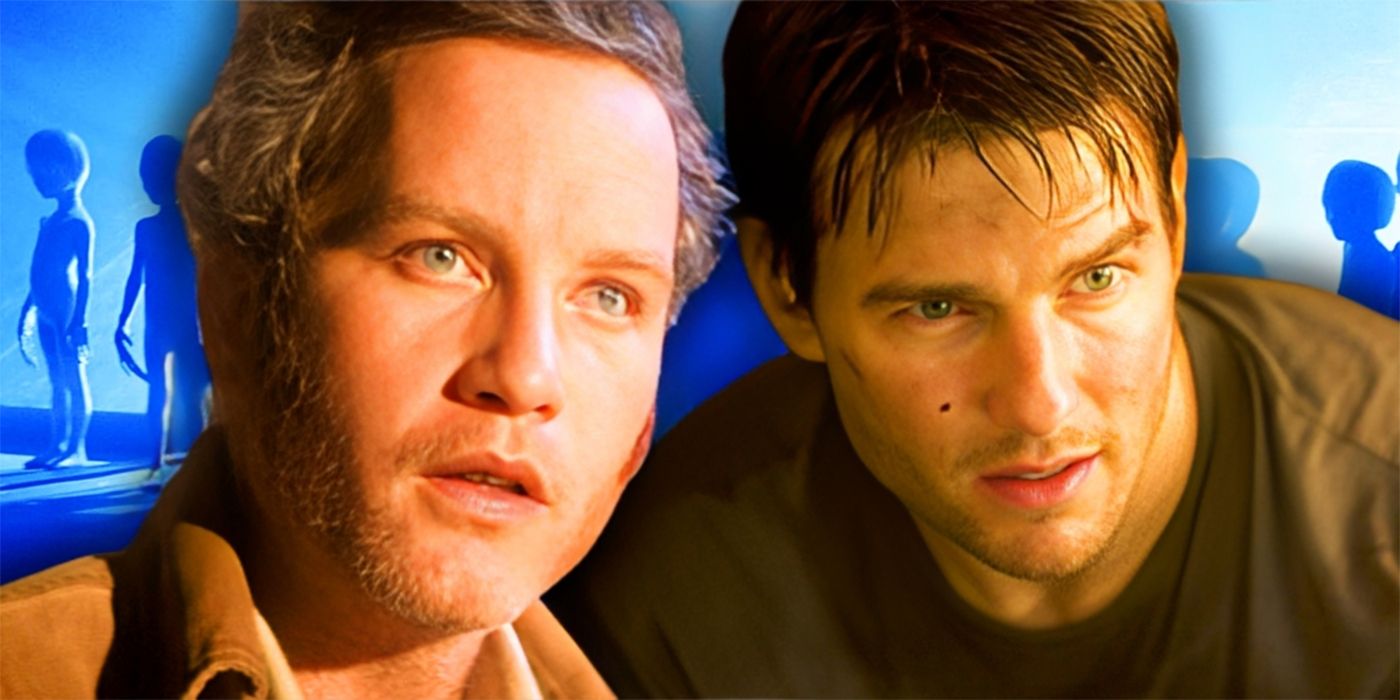
Related
3 Best Steven Spielberg Movies About Aliens
Steven Spielberg is a critically acclaimed director, and his alien movies are often considered highlights in his career.
Around the same time the Martian Tripods began to fall, the Red Weed developed strange white, mildew-like spots before crumbling to dust. This implies that this invasive vegetation died out due to a bacterial infection similar to the one contracted by its Martian cultivators, and possibly also from the absence of their fertilization. The purpose and very nature of the Red Weed is not made absolutely clear in the film, though its unnaturally rapid growth could indicate that it was more of an infection than a plant, and thus was part of the invading forces’ design to conquer Earth rather than a source of food.
How Other War Of The Worlds Adaptations Handled The Ending
What Defeats The Martians In Each Version Of The War Of The Worlds?
H.G. Wells’ The War of the Worlds has been a cornerstone of the science-fiction genre for 126 years and counting, and in that time its adaptations have run the gamut of entertainment mediums. The story has thus far been directly adapted into seven films, two TV series, countless radio and stage versions, and even a musical starring Liam Neeson – not to mention several sequels to the original story. Throughout this diverse array of retellings, The War of the Worlds has seen a wide variety of settings, characters, and especially different conclusions.
|
War of the Worlds (2005) |
||||||
|---|---|---|---|---|---|---|
|
Budget |
Box Office Gross – Opening |
Box Office Gross – Domestic |
Box Office Gross – International |
Box Office Gross – Worldwide |
Rotten Tomatoes “Tomatometer” Score |
IMDb Score |
|
$132,000,000 |
$64,878,725 |
$234,280,354 |
$369,592,765 |
$603,873,119 |
76% Tomatometer |
6.5/10 |
(via Box Office Mojo)
Some versions of the sci-fi classic War of the Worlds have seen the Martian invaders wiped out by the common cold virus, some by microbes in general, still others by the rabies vaccine, and even one by song. In nearly every iteration, however, the conclusion is as unexpected and abrupt as that of the source material and is perhaps meant to imply the inexplicable and unpredictable nature of humanity’s continued survival.
Source: Box Office Mojo
